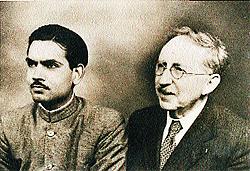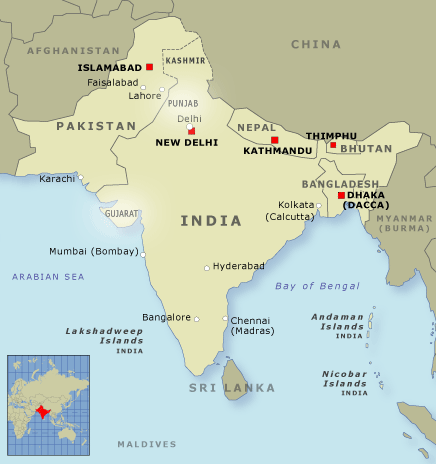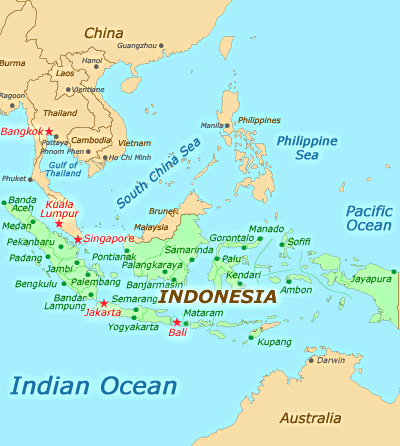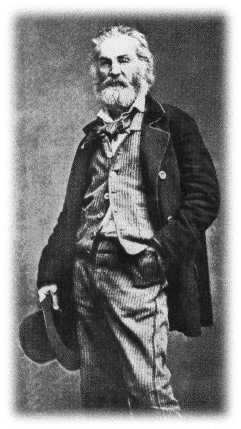LITR 5734 Colonial &
Postcolonial Literature

Lecture Notes
Conclude Things Fall Apart; Whitman, "Passage to India"; begin Forster’s Passage to India
| Today's purposes schedule, handouts midterm Whitman's "Passage to India": Talli Ortiz web review: Forster, novel of manners discussion of opening chapters Aziz on Moslem empire film highlight: A Passage to India
|
|
Thursday, 21 February: Take-home midterm due within 72 hours of class meeting. Walt Whitman, "Passage to India" (handout); begin Forster’s Passage to India, section I (“Mosque”), chapters 1-3, pp. 3-34.
· Poetry reading from Whitman's "Passage to India"
Reader: Talli Ortiz
· Web review: E. M. Forster sites
· film highlight: Passage to India (d. David Lean, 1984)
This week’s purposes:
Course organized in 3 novel dialogues, starting with Heart of Darkness & Things Fall Apart
Midterm at end of first third
Today begins second third of novel-dialogues (A Passage to India & Train to Pakistan)
Natural for students' minds to be divided, but . . .
reading schedule was reduced last week and this week to allow time for midterm
A Passage to India is probably our most demanding novel in terms of length + complexity, so pace now resumes
Orientalism handouts; schedule, midterm
Thursday, 28 February: Continue E. M. Forster, A Passage to India (pp. 35-212; through II, "Caves," chapter xx); Edward W. Said, "Orientalism" (handout)
· Dialogue between A Passage to India & "Orientalism":
leader: Dawlat Yassin
· Poetry reading from Walcott: “The Season of Phantasmal Peace” (464-65)
reader: C. Vanessa Olivier
· Web review: novel of manners; karma
preview Dawlat on "Orientalism"
The associations that western writers make of "India" as the supplementary Other are also shared by the term "Oriental."
Some of these associations resurface in post-9/11 associations with bin Laden, al-Quaeda, the Taliban, terrorist conspiracy
The "Oriental" can signify western projections of the sensual, luxurious, forbidden, fanatical
Passage p. 21 "Then you are an Oriental."
Thursday, 6 March: complete Forster, A Passage to India (through part III, "Temple"; 212-362)
· Reading highlight for Passage to India: Cory Owen
· Poetry reading from Walcott: "God Rest Ye Merry, Gentlemen" (91)
reader: Matt Richards
· Web review: Partition of India
midterm
midterms due when?
If your midterm isn't coming in soon, let me know status by email, phone, conference.
Midterms returned?
All midterms that are in by this weekend, I'll try to read and return by the following weekend
response via email
2-3 paragraph note followed by midterm grade
plus sometimes some bolding in your text to indicate occasional style errours
Welcome to reply, continue discussion, follow-up as helpful
graduate model of student-instructor relations:
more master-apprentice > "colleagues"--if you're in graduate school, we're all committed allies in the fight for literature and knowledge--just a question of how to help each other
point: don't take criticism as hit but as shared enterprise--your work on this course makes the course--my reactions can help your work here and beyond
Whitman's "Passage to India": Talli Ortiz
Whitman writes poem in 1870, publishes 1871
Main historical background: 1869 two huge events in “globalization”
Opening of Suez Canal in Egypt
U.S. Intercontinental Railroad
Map of U.S. Intercontinental Railroad
Map of Suez Canal as a "passage to India"
research posting
Aziz on Moslem empire
pp. 12, 16, 22
Mughal Empire--imperial power ruling Indian subcontinent, 1500s-1800s; Mughal (or Mogul) is Persian word for Mongol, as in Genghis Khan (1162-1227)
Akbar the Great, Shah Jahan, Auranzeb
Ottoman Empire or Turkish Empire--at height in 16th-17th centuries, stretched from southeast Europe throughout Middle East to North Africa
Osman, Mehmet, Suleiman the Magnificent (1494-1566)
web review: Forster, novel of manners
Forster
Forster a peripheral member of Bloomsbury Group of 1910s-20s: Virginia Woolf, Lytton Strachey, John Maynard Keynes, Vanessa Bell
Visited India 1914; early 1920s as private secretary to Maharajah of Dewas
General reputation:
splendid Edwardian novelist in “Great Tradition” of English novelists (Austen, Dickens, George Eliot, Hardy, James and others from late 1700s to early 20c)
stopped writing novels in middle age, lived at Oxford as scholar / man of letters
posthumous novel Maurice established as gay / queer author
materials transferred from Research Links page
E. M. Forster
A Passage to India

Natwar Singh (Indian diplomat) with Forster
A Passage through Forster: A Website about E. M. Forster and his Works
Review of issues in A Passage to India
School projects on A Passage to India
Links to sources on film & novel of A Passage to India
novel of manners
2. To theorize the novel as the defining genre of modernity, both for early-modern imperial culture and for late-modern postcolonial culture.
2a. By definition, the genre of the novel combines fundamental representational modes of narrative and dialogue. These modes respectively control and decenter storytelling.
-
Alternately, narrative and dialogue respectively foreground literate and spoken voices. Especially in postcolonial literature the narrator may be a “literate” voice, while characters’ voices represent unwritten, spoken, or oral traditions—another intertextuality.
-
How may literary fiction instruct or deepen students’ knowledge of world history and international relations compared to history, political science, anthropology, etc.?
Questions for seminar discussion:
Using A Passage to India for examples, how may a novel of manners serve a multicultural course in Literature or “Culture Studies” generally?
What would you rather be talking about? (Not to imply we're wasting time, but cultural or identity issues always feel more pressing than formal analysis.)
Jane Austen’s novels: Sense and Sensibility (1811), Pride and Prejudice (1813), Emma 1815
Henry James, The American (1877), Daisy Miller (1878), The Europeans (1878), The Bostonians (1886)
Edith Wharton, The Age of Innocence 1921
Structure: comedy or romantic comedy—social climbing and falling, conclusion in marriage
Subject matter descended from “Comedy of Manners”
Goldsmith, Sheridan’s School for Scandal in 18c, Oscar Wilde’s Importance of Being Earnest
Contemporary example of comedy of manners: Frazier
(affluent, educated, witty--classy but class uncertainty--if physical, graceful or finicky rather than gross or bumbling)
"manners" doesn't exactly mean same thing as etiquette, but more like behavior and how it fits with others and what it means
Passage to India p. 15 "To escape from the net and be back among manners and gestures that he knew!"
8 servant-master code
Subject: courtship, social interaction of leisure class, professionals, wannabes; social codes, reading and offering of signs
Characters test each other’s interest, honor, generosity, folly, irony
Misconceptions, false identities, blunders, connections
Purposes of studying A Passage to India as "novel of manners"
"Novels of manners" are often regarded among the "finest literature," but can be difficult to read
A Passage to India extends conventional “novel of manners” form in at least 2 ways:
cross-cultural
mystical union
+ gender: like James and Whitman, a gay / homosexual / queer author
Both intensely social and outside normal courtship
novel of manners
Types of novels (Virtual Salt)
Free Dictionary article on Forster & novel of manners
A Passage to India extends conventional “novel of manners” form in at least 2 ways:
cross-cultural
mystical union
cross-cultural
7 "possible to be friends with an English gentleman?"
8 "We poor blacks . . . "
mystical union, resolution of conflicts & differences through divine
later in novel, esp. through character of Godbole, Forster camps on Hindu festivals, myths (Krishna)--most criticized parts of novel
Azia and Mrs. Moore under the moon
12 . . . the name of the poet, Hafiz, Haliz, Iqbal, was sufficient guarantee. India--a hundred Indias--whispered outside beneath the indifferent moon, but for the time India seemed one and their own . . .
28 Mrs. Moore: "A sudden sense of unity, of kinship with the heavenly bodies, passed into the old woman and out, like water through a tank, leaving a strange freshness behind.
But as a muted Modernist, Forster uses symbols effectively
quick definition of symbol . . .
material image + multiple meaning
Chapter 1 begins and ends with "caves"
images of entrapment and enclosure, like "net" p. 15--compare Whitman's images of fusing and linking
Chapter 3 ends on "wasp," which reappears periodically
Leftovers from previous classes
discussion: Beth Cordell
Emecheta's Rape of Shavi was 3rd African text in earlier version of LITR 5734
most interesting stylistic angle: Rape of Shavi seemed like a utopian / science fiction novel as told from a very unfamiliar source: an African woman
upshot: the white travelers to Shavi have an airplane that seems more like a spaceship, and the whites seem like aliens
feminist angle:
central action involves the rape of a princess by one of the white travelers, her infection with venereal disease, destruction of royal house
analogue: western intervention "rapes" African land and people, undermining social institutions
Discussion starter(s) relating Holst Petersen article to Things Fall Apart; also review web article on wife-beating in Africa (under “Miscellaneous”): Beth Cordell
Is an indirect, oblique approach to women's issues in African literature better than one of confrontation?
What constitutes Ms. Isimeto-Osibuamhe's reluctance in the beginning to leave her husband and to insist upon retaining his name?
What about her community's lack of encouragement in leaving the marriage? Is this really just an issue specific to Nigeria?
Is wife subjugation more entrenched in African countries? Do the men feel even more disempowered as a result of neocolonialism?
In the rejoinder, is the writer shedding light on a globally complex issue, patriarchy, or is he merely being defensive for whatever reason?
article on wife-beating in Africa
Instructor's comments:
repeated difficulty or irony in discussing women's issues on a global or planetary context:
we're accustomed to criticizing western society as sexist
but it turns out that women's equality (or approximation to equality) is one of the most distinguishing features of western societies / developed nations.
Analogy to colonialism-postcolonialism:
western cultures oppress colonized countries but give them opportunity to criticize oppression
western cultures oppress women but "universal literacy" eventually provides possibility of voice to all.
Repression and expression as essential features of one world system or of human experience generally.
recurring test in meeting of colonizing powers and colonized countries:
How much does one insist on "universal" standards of human rights, decency, individualism?
How much does one back off and tolerate cultural differences?
Recently in news:
Karen Hughes, President Bush's close advisor recently appointed to head agency for improving American image to Muslim countries, met with Saudi Arabian women and criticized the ban on women drivers in Saudi Arabia.
"I believe women should be free and equal participants in society. I feel that as an American woman that my ability to drive is an important part of my freedom."
The Saudi women gave mixed reactions, some of them saying that western standards of womanhood were inappropriate and undesirable in their context.
From recent article by T. A. Frank on New Republic webpage:
. . . Isolationist conservatives generally take the position that it's not the proper role of American politicians to comment on another society's treatment of women. But liberals don't have that excuse. Instead, their dilemma is by now an old story: For the contemporary left, when any value--in this case, equal rights for women--comes up against the value of not judging other cultures, non-judgment tends to win. The left prizes tolerance so highly that it often refuses to condemn intolerance. (Europe, with a large population of immigrants who oppose the values of the society in which they live, has grappled with this problem for years.) . . .
To find fault with another society is not, of course, to suggest an immediate correction-by-Tomahawk. It's not even to suggest that we always make our views known to places like Saudi Arabia--there are times for courtesy and times for moral clarity, and we have to pick our moments.
Still, one can go too far in the direction of civility. Sure, if I were talking to King Abdullah at a cocktail party, I imagine I'd avoid the subject of discrimination. Instead, in the name of decorum, I'd probably discuss the weather, or sand varieties, or beards. But Karen Hughes wasn't at a cocktail party last week. She was acting as an ambassador of American values. And one of those values is, or at least should be, opposition to sexism of all kinds. Good for her for bringing it up.
Shelley, "The Indian Serenade"
Pauline Kael review of Lean's film of A Passage to India
Bakhtin 47 The author participates in the novel (he is omnipresent in it) with almost no direct language of his own. The language of the novel is a system of languages that mutually and ideologically interanimate each other.

Introduce A Passage to India
Title adapted from 1871 poem by American poet Walt Whitman
“Passage to India”—available on Research Links under Forster
Objective 3 on American attitudes toward empire, imperialism, colonialism
Poem written near peak of “Manifest Destiny” in North America—USA from sea to shining sea
Whitman previews extension of New World democracy to Old World, signified by “India”
“India” in Whitman’s usage, and other older usages, may simply mean “the East,” “the Orient”—as when Columbus sailed in search of “the Indies”
Caribbean also known as the “West Indies”
“The Indies” or “the East Indies” is a loose geographical term for South and Southeast Asia, especially the Malay archipelago and Indonesia
Dutch colonies in southeast Asia (esp. Indonesia) were known in English as “The Dutch East Indies”

Whitman’s poem about what happens to America’s national-ideological expansion when it runs into the Pacific Ocean
> it makes a “passage to India”
Whitman 1819-91
“Passage to India”—1871
E. M. Forster 1879-1970
A Passage to India 1924
Forster a peripheral member of Bloomsbury Group of 1910s-20s: Virginia Woolf, Lytton Strachey, John Maynard Keynes, Vanessa Bell
Visited India 1914; early 1920s as private secretary to Maharajah of Dewas
Type of novel
Next week’s web review
“novel of manners”
Purpose of discussion: A Passage to India widely considered among “greatest novels” in English
Great novels may have an identifiable genre (e. g., Moby-Dick is a “sea novel,” Jane Eyre is a “gothic romance,” Things Fall Apart a historical novel) but great literature suffers from being “reduced” to a single genre
Can anyone identify some examples of “the novel of manners?”
Jane Austen’s novels: Sense and Sensibility (1811), Pride and Prejudice (1813), Emma 1815
Subject: courtship, social interaction of leisure class, professionals, wannabes; social codes, reading and offering of signs
Structure: comedy or romantic comedy—social climbing and falling, conclusion in marriage
Subject matter descended from “Comedy of Manners”
Goldsmith, Sheridan’s School for Scandal in 18c, Oscar Wilde’s Importance of Being Earnest
Comic concentration on details, e. g. collar button
Thackeray, Vanity Fair
Henry James, The American (1877), Daisy Miller (1878), The Europeans (1878), The Bostonians (1886)
Edith Wharton (less comical), John Updike
Characters test each other’s interest, honor, generosity, folly, irony
Misconceptions, false identities, blunders, connections
A Passage to India extends conventional “novel of manners” form in at least 2 ways:
cross-cultural
mystical union
+ gender: like James and Whitman, a gay / homosexual / queer author
Both intensely social and outside normal courtship
novel as genre of modernity
Conclude with Bakhtin, pp. 29, 30, 39
